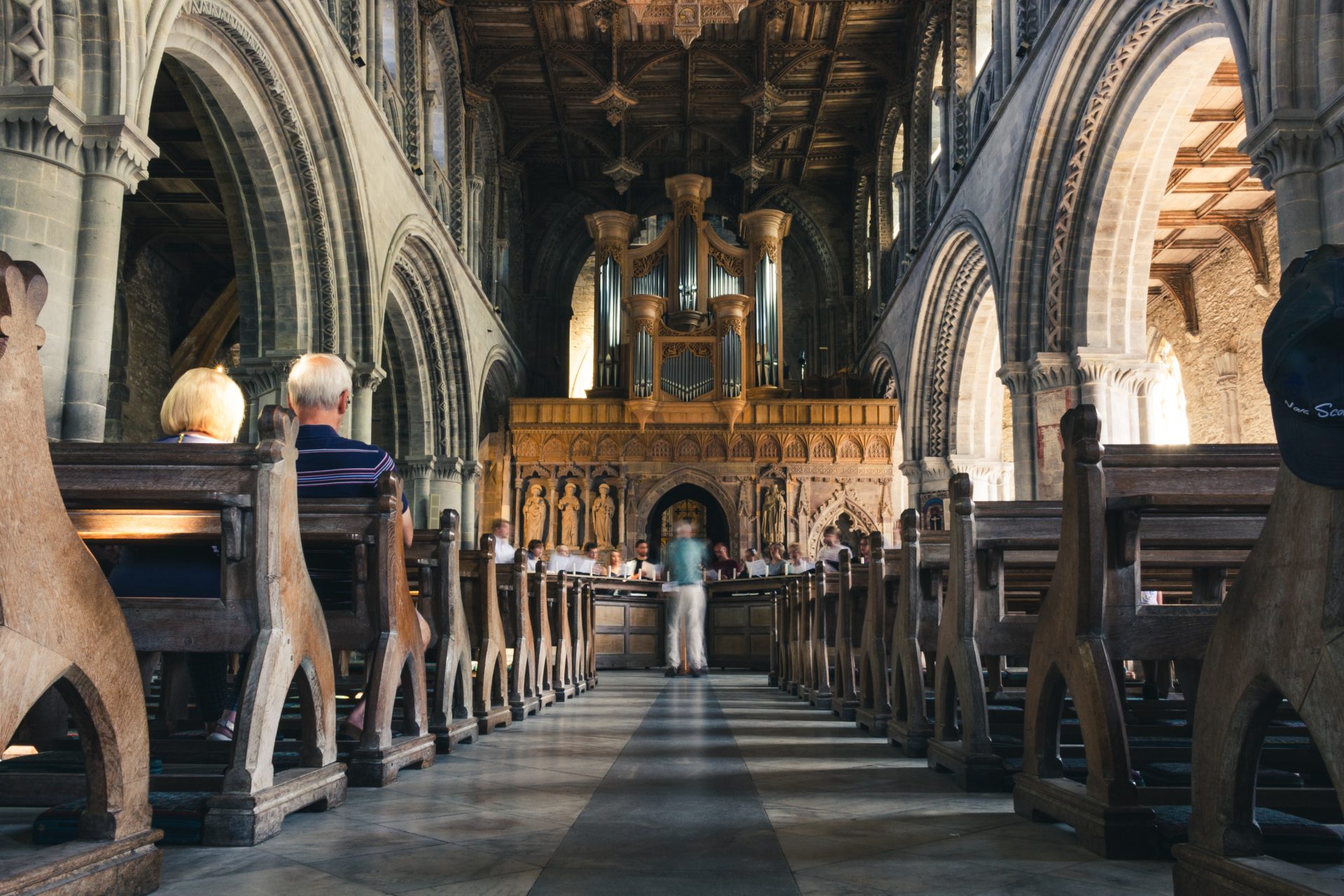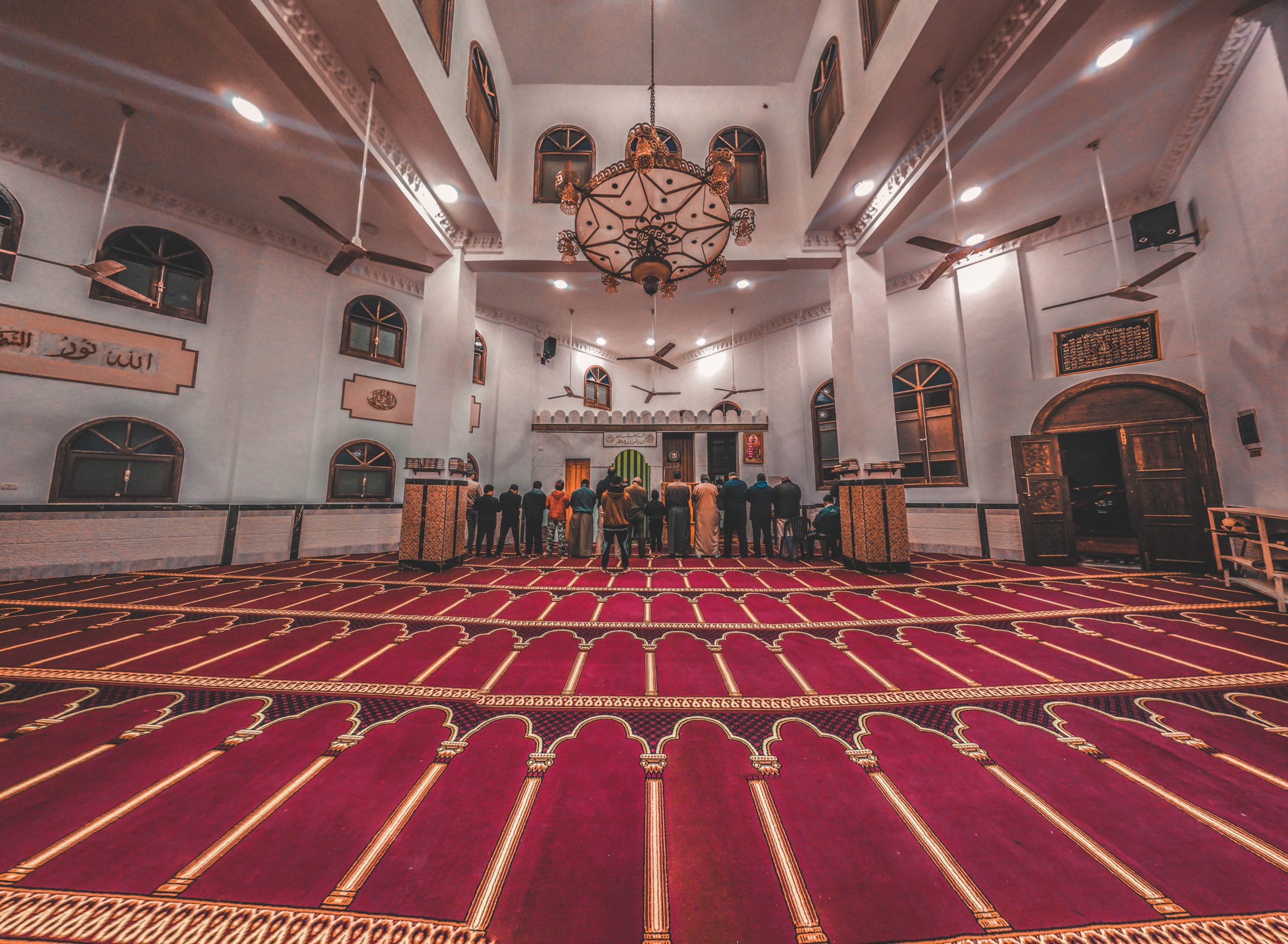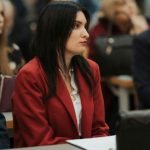
In Bosnia and Herzegovina (BiH), as well as regionally and around the globe, there is a growing trend of intertwining religious and ethnic identities. The fusion of religion and politics can be seen in the construction of monuments to armies on religious properties.
This can be confusing and even dangerous, particularly for younger generations. Theologians and representatives of religious institutions believe the solution lies in the education of young people, but also of believers in general, with the aim of overcoming ethno-nationalist narratives.
Within the regional context, Alen Kristić, theologian and project manager of the Center for Peace Education (CPE), explains that religion’s role is being reduced to that of a mere ideological tool. This reduction has been influenced by a variety of historical circumstances, including the decline of the Ottoman Empire and the delayed arrival of modernity.
“An abundance of poisonous socio-political and religious fruits has sprouted on the tree of this centuries-old regional reduction of religion. Awareness of universal humanist values of a religious nature – without which secular notions of human dignity and human rights are unimaginable – is nearly suffocated in the bosom of religion,” says Kristić.
According to Kristić, the exclusive utilization of religious resources as a tool for national ideology has resulted in a situation where every outgrowth, especially those which blur the line between religion and nationality, is neurotically embraced as a symbol of militant exclusivity, rather than as a symbol of unconditional hospitality.
The interconnection between religion and politics also manifests in the erection of monuments inside or near religious structures, commemorating specific armies from the most recent war. Mustafa Prljača, from the Public Relations Office of the Rijaset Islamic Community in BiH, emphasized that there are no such monuments on the premises of their religious institutions. However, there are memorials in certain locations that serve as remembrances for the victims from those places. These memorials were not built by the Islamic Community but by local associations, as they were unable to obtain the necessary permits to construct them in public space.
“We, as a community, resisted this as much as we could, but the local authorities in some places, especially in the Republika Srpska entity, wouldn’t allow people to build a memorial in public space. So, they then built it on land belonging to a mosque or some other Islamic religious property,” said Prljača. He pointed out that the Islamic Community functions completely autonomously and is not at all dependent on other domestic or foreign entities.
We have yet to receive a response from the Office of the Bishops’ Conference of BiH or the Metropolitanate of Dabrobosna in BiH regarding the construction of monuments on their properties. Friar Ivan Nujić, Director of the Franciscan Classical High School in Visoko, believes that it is inappropriate to erect monuments within the premises of churches and mosques, honoring the armies of the recent war in BiH, or any other army for that matter.

“The place of the army is not in sacred space but in a profane space – in a barracks or on a military training ground. Placing the war insignia of a particular army in or near sacred spaces sanctifies the participation of that army in the war in a way – that is, its war ‘successes’ and ‘victory over the enemy.’ Thus, the killing of people is legitimized with justifications of a divine nature. ‘Our army,’ no matter how many people are killed along the way, is ultimately presented as ‘God’s army,’ and killing people is promoted as a praise-worthy or even God-pleasing act. Of course, this is serious manipulation,” said Fr. Nujić.
He believes that religious institutions should always be independent of political and economic influence, even though such institutions have historically been connected to varying degrees to political, economic, as well as military power.
“Religious ministers have spiritual influence over the members of their communities, which can be translated into political and economic power in no time. Unscrupulous or incompetent religious leaders, if they have the opportunity, sell out to cunning or corrupt politicians or abandon their influence over the members of their communities, which of course leads to the collapse of religious life and falling away from faith,” Fr. Nujić continued.
Patriarch Kirill Calls the West “Evil”
As an example of a religious leader who propagates political ideologies and supports Russian aggression against Ukraine, Kristić highlights Patriarch Kirill, who has essentially reduced the Russian Orthodox Church to serving as an ideological instrument of the Putin regime.
“Patriarch Kirill has even granted sacred legitimacy to the war in Ukraine, portraying the West, in a Manichean manner, as absolute evil – a place where Christian values are destroyed, even a kind of antichrist – while Russia is presented as absolute good. It is noteworthy that such conduct by Patriarch Kirill has prompted various forms of ecclesiastical and theological opposition, especially considering the repressive nature of Putin’s regime,” stated Kristić.
Kristić further explained that the group called “Russian Priests for Peace,” comprising about three hundred Orthodox priests within Russia, signed a statement condemning Russian aggression against Ukraine. Additionally, around 400 priests from the Ukrainian Orthodox Church, which falls under the jurisdiction of Patriarch Kirill, have appealed to the leaders of the Eastern Churches to declare Patriarch Kirill guilty of heresy for aligning himself with the ideology of the ‘Russian world’ and for the sin of blessing the war against Ukraine. Kristić cited the example of the courageous Russian Orthodox priest Ioann Burdin, the parish priest of Karabanov, who openly preached against the war in Ukraine.
On the other hand, Kristić believes that Pope Francis exemplifies interfaith cooperation. This was demonstrated when he signed the “Declaration on Human Brotherhood and Sisterhood for World Peace and Coexistence” together with the Grand Imam of Al-Azhar, Ahmad Al-Tayyeb, in 2019. Additionally, Kristić highlights Bishop Mat Uzinić as an example of the distinct approach within the Catholic Church in Bosnia and Herzegovina, as well as Bishop Grigorije Đurić within the Serbian Orthodox Church.

Memorials Need Not Be Manipulative
According to Fr. Nujić, the construction of military monuments, whether merely inscriptions on stone or elaborate sculptures featuring war iconography, in cemeteries, religious buildings, or on religious property is not a phenomenon exclusive to Bosnia and Herzegovina. He noted that in many Austrian villages, the main square, which is often located in front of or near a church, features monuments displaying the names of soldiers who lost their lives in World War I and World War II, including those who fought for the Wehrmacht.
“That doesn’t bother anyone there, because in this way, the local community and the families of the soldiers preserve the memory of their members, regardless of which army they served in,” stated Fr. Nujić. He pointed out that in such cases, the construction of a monument to fallen soldiers does not necessarily have to be a manipulative act, because it does not have to glorify the army in which these soldiers fought.
Kristić believes that merging religious and ethnic identities can be dangerous as well as confusing for younger generations. He argues that the fundamental issue is that the new generations in this region uncritically inherit a disastrous approach to belonging and identity formation in general, not only in the context of religious or ethnic identity.
“Having lived for centuries on the borders of conflicting civilizations and empires, constantly feeling the presence of an immediate enemy threat, real or imagined, our region has embraced the construction of identity in opposition to these enemies as the only possible option. In practice this means that all our identities resemble military fortresses, and that the key strategy for their formation is demarcation and differentiation – even if it means artificially creating divisions,” explained Kristić.
He went on to note that the primary duty of all religions, including Christianity and Catholicism, is to mend the fractured bonds of universal human brotherhood and sisterhood.
“No religion – not even Christianity, not even Catholicism – is an end in itself. It should not be subjugated to any political or religious ideology. Instead, it should commit to the humanization of civilization, to serving as a constant reminder that all human beings are brothers and sisters by creation. All our other affiliations, all our other particularities, should serve the purpose of preserving and deepening the awareness that we are all created as brothers and sisters, as well as that ultimately, we are all equally fragile, vulnerable, and mortal beings,” explained Kristić.
Education is Key
Kristić emphasizes the need for education among young people and believers in general to overcome ethno-nationalistic narratives. As part of the Center for Peace Education, he has organized the “Big School of Peace,” in which 12 schools participate, and the “School of Peace,” in which four schools participate from the Central Bosnia Canton.
“I am deeply convinced that these forms of informal education are of inestimable importance in our context, first of all because our formal education still lacks even the basic elements of comprehensive peace education. Moreover, young people are often exposed to pernicious narratives of a militant and exclusive nature, even within their own families,” said Kristić.
He added that the time has come for religions in the region reflect upon the penitential sins of obediently serving the national ideological agendas.
“It is high time for religions in our region to dedicate themselves, as Pope Francis insists, to repairing the fractured bonds of universal human brotherhood and sisterhood, to developing social solidarity beyond national, religious, and ideological boundaries. Practically, this would mean reviving the values of universalistic humanism of a religious character and becoming premier regional educators. Only then can all our particularities, especially religious and national ones, finally begin to thrive in a spirit of radical openness and hospitality,” said Kristić.
Kristić emphasizes that religions should remind us that all our individualities are an embrace of the universal – a peaceful encounter with people from the other shore. This understanding prevents them from being distorted into stinking dens, while simultaneously safeguarding the universal from abstract sterility.
Fr. Nujić believes that promoting peace entails addressing and correcting toxic relationships at their core by actively opposing religious exclusivity, prejudice, and hatred.
“Endorsing and spreading religious exclusivity and resorting to violence in the name of religion cannot be justified by any means, simply because peacemaking is part of the very essence of religion. Therefore, promoting peace and fostering cooperation with others is an essential aspect of religious identity and the duty of all who consider themselves believers. It is a joint project in which all believers should participate responsibly, a project unlimited in terms of time and methodology, a path to be followed, a path that is paved with good deeds in everyday life,” concluded Fr. Nujić.






